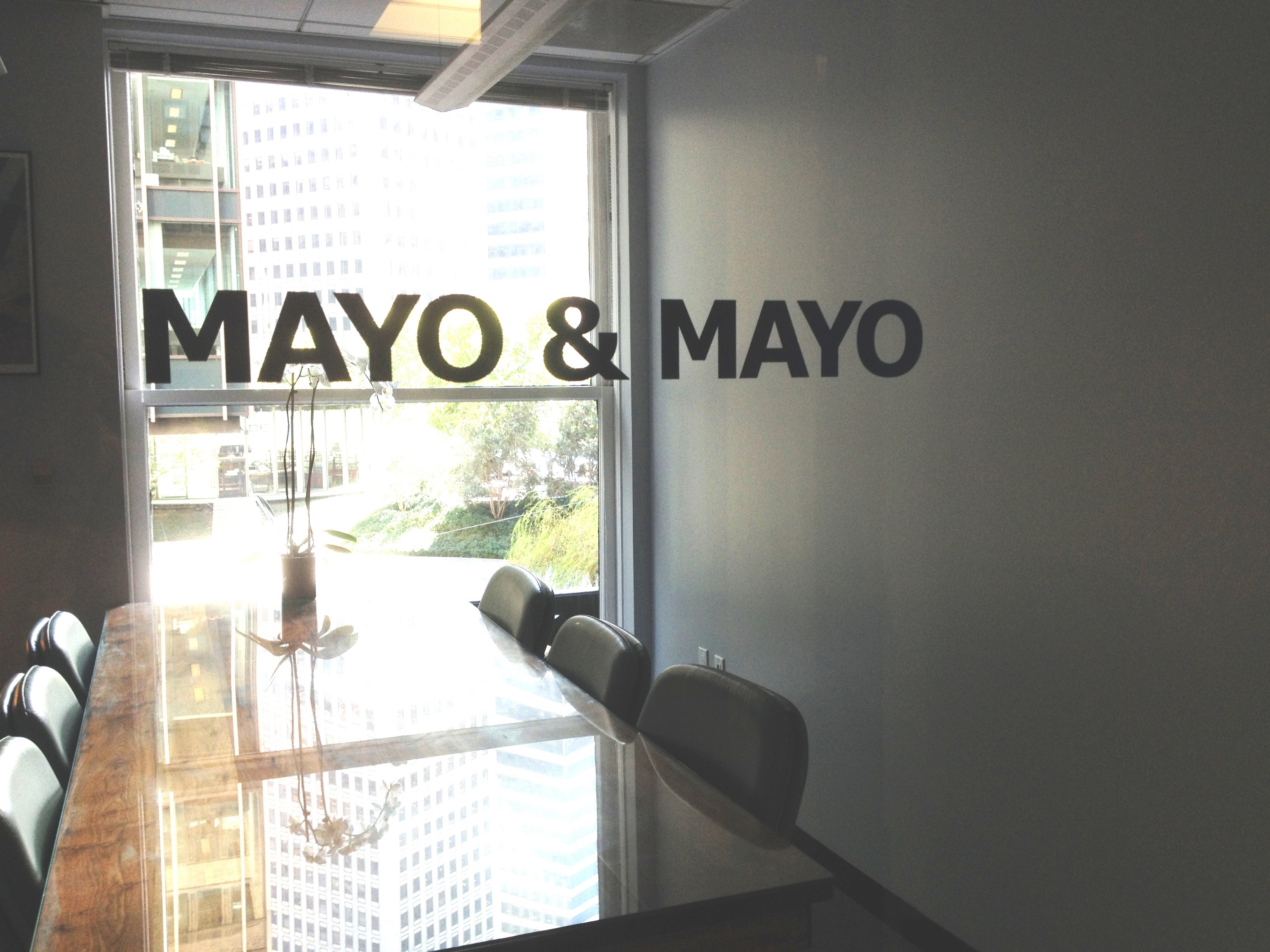
California Probate Attorney
Free consultation 415-397-1515 (San Francisco Bay Area) or 310-488-5310 (Los Angeles & Santa Monica). California probate attorneys Mayo & Mayo provide legal services in Probate Administration, Probate Litigation, Probate Creditor Claims and Mediation. California Probate attorney fees are set by California statute as shown below and our law firm advances all costs. You do not need to be in San Francisco, Los Angeles or California to start a probate proceeding and you do not need to attend the court hearings. You, as the Administrator or Executor is entitled to the same statutory fees as the attorney or you may opt to waive your fee.
Free consultation 415-397-1515 or 310-488-5310.
Probate is a court process required for California estates over $166,250 where the decedent did not have a Trust. Our San Francisco probate lawyers can prepare and file all documents required from start to finish of the probate and advance all the Probate Court filing fees and other costs. Estate attorney fees and reimbursement of costs will be paid by the estate at the end of the probate case. The California attorney fees for a probate are set by statute and the fee schedule is shown in the first tab below. The statutory fee is the same to any attorney in California.
The Executor or Administrator is also entitled to claim the same fee or can waive the fee. Our office will also take care of all of the required notices, probate court requirements, coordinate any necessary appraisals, work with the administrator or executor to liquidate assets, arrange for the creditors to be paid, file creditor objections, and work closely with the personal representative to expedite the many details unique to an expeditious close and distribution of the probate funds to the beneficiaries. Your questions will always be answered promptly and thoroughly. Free consultation 415-397-1515 (San Francisco Bay Area) or 310-488-5310 (Los Angeles, San Diego, Santa Monica, Southern California).
2. Probate Litigation and Beneficiary Claims
1. Probate Administration
Why Probate
The first step our probate attorney in San Francisco will take is to determine whether a probate proceeding is required. From 2022 to 2025 if the estate is less than $184,500 in gross assets, an estate can usually be distributed to the heirs with a California small estate affidavit without probate administration which is a much less expensive approach. The limit is raised every 3 years and will change in 2025. Living trusts (also called revocable trusts) or real property that is held in joint tenancy or community property with rights of survivorship, can also be distributed without a probate and our San Francisco attorneys can assist you with the Trust Administration. If the decedent’s primary residence was in a State outside of California, then the primary probate administration would be filed in that state of domicile. If the decedent held real property in California, an ancillary probate would be filed here. If the decedent lived in California and held real property in another State then an ancillary probated would be filed in that State to distribute the real property.
California Probate Fees
California probate fees are set by California statute. The personal representative (the executor of the Will – called a testate estate – or the administrator without a Will – called an intestate estate) and the attorney for the estate are each entitled to the same fee. California law sets the probate fee schedule based on the gross value of the estate at 4% of the first $100,000, 3% of the second $100,000, 2% of the next $800,000 and 1% over $1 million up to $9 million at which point the fee is further reduced. Court filing fees vary by county and generally range from $435 to $465 per filing. There are other costs involved that average $1,500 to $2,500 to the estate, depending on the size of the estate and include court filing fees, publication to creditors, mandatory efiling fees and the fee charged by the court-appointed probate referee who will value the estate as of the date of death. Our California law firm advances the costs of the probate and is reimbursed by the estate at the end of the probate so that you, personally, do not have to advance any funds. After the Judge signs the initial Order for Probate, an estate account can be established to repay the family for the funeral expenses and to pay other creditor bills including medical expenses of the decedent, real property tax bills and real property insurance.
Probate a Will or Intestate Probate
Probate can be commenced either with or without a Will. If there is no Will, it is called an intestate estate.
To probate a valid Will, including a holographic Will, our probate attorney prepares and files the petition for probate, duties of the personal representative, notice of the probate to the beneficiaries named in the Will or the heirs of the intestate estate and other required documents. Some of these forms can be found at the San Francisco Probate Court http://www.sfsuperiorcourt.org/forms-filing/forms and from the California courts http://www.courts.ca.gov/forms.htm?filter=DE. Our California probate lawyer will attach a copy of the Will to the petition for probate and lodge the original Will with the court and arrange for publication of the notice of probate. The Probate Court will assign a hearing date to appoint the Executor named in the Will and we prepare the other documents needed. Any power of attorney is no longer legally valid; only the executor has the power to administer the decedent’s estate.
If the decedent died without a Will or if no Will or Trust can be found, the probate estate will be distributed according to intestate law and the probate judge will appoint an Administrator who will act as the personal representative. The administrator appointed may be one of the beneficiaries who will perform the same duties as an executor such as gathering assets and identifying the creditors of the decedent’s estate.
The Executor or the Administrator assists the estate attorneys in identifying the creditors and family members who receive notice of the probate proceeding and will sign the documents prepared by our San Francisco attorney for filing with the probate court.
After our probate lawyer files the probate petition, we notify the creditors, family members and beneficiaries both by mail and by newspaper publication that the probate has commenced. The probate code requires a notice period of 120 days from the date on which the Letters are issued and the notice to creditors is sent before filing the petition for final distribution. During this time, the attorney and the executor or administrator work together to pay creditors and prepare an Inventory and accounting of the probate estate. If some of the assets need to be sold in order to distribute the proceeds or pay federal and state taxes, then our probate attorney and executor or administrator work together to accomplish this task. The fees paid to the executor or administrator and the estate lawyers are paid by the estate, are a fixed fee schedule proscribed by statute, and must be approved by the Probate Judge. Once the probate accounting has been approved by the probate court, the net amount of the estate is distributed to the beneficiaries and the probate proceeding is closed.
Estate Taxes
Estate tax is determined on the size of the estate and the year in which the decedent died. As of January 1, 2024, the lifetime exclusion from federal estate and gift tax is $13,610,000 for an individual and $27,220,000 for a married couple as the exclusion can be transferred to the second decedent spouse. In addition, you can gift $18,000 per year per person tax free without using any of your lifetime exclusion. This exclusion amount will change each year until 2026 when the current exemption expires unless Congress votes to extend the exemption. The IRS web site has more detailed information. http://www.irs.gov/Businesses/Small-Businesses-&-Self-Employed/Estate-Tax
Trust With Assets Not Funded Into the Trust
If the decedent had a Trust but all of the assets such as real estate were not recorded as property in the Trust estate as of the date of death, our estate attorneys can file a Heggstad petition with the probate court to request that those omitted assets, including real property, be included as trust property in order to avoid probating those assets. Unclaimed property claims for the decedent are sent to the State of California Unclaimed Property. http://www.sco.ca.gov/upd_msg.html[/column]
2. Probate Litigation and Beneficiary Claims
If you are a beneficiary or a creditor with questions about probate or if the estate is already in probate and is not progressing in a manner that you think is appropriate, our California probate litigation attorneys can represent your interests. In order to minimize your legal fees, the estate lawyer at Mayo & Mayo will first attempt to negotiate a compromise for all parties before commencing litigation, however, if litigation is required, we have extensive experience litigating beneficiary interests and defending trustees.
The California lawyers of Mayo & Mayo can determine if a lawsuit is required and represent you with
– Beneficiary disputes
– Creditor claims in a probate or trust
– Trustee or Executor issues including breach of fiduciary duty and failure to provide an accounting to the beneficiaries
Often the executors make simple mistakes in attempting to distribute the estate without a competent attorney or the trustees are unaware of their legal obligations under trust law. Our estate attorney can represent you, the Trustee, and resolve these problems as well as beneficiary disputes. If not, Mayo & Mayo can file suit on your behalf in order to obtain a proper accounting and estate distribution to the beneficiaries. If you are an executor or a trustee, we can assist in responding quickly to beneficiary demands for notice, accounting and distribution.[/column]
3. Creditor Claims
If you are a creditor of a decedent, California attorneys Mayo & Mayo can provide legal advice to you. In order to minimize your legal fees, Mayo & Mayo will attempt to negotiate a compromise for all parties first before commencing litigation, however, if litigation is required, we have extensive experience litigating creditor interests. You have a limited time in which to file your creditor claim and if your creditor claim is not paid or if it is rejected, you have 90 days to file a civil lawsuit to protect your creditor claim.[/column]
4. Mediation
San Francisco attorney Mary Mayo is also a certified California Mediator proficient in mediating probate and trust disputes between the executor, administrator, trustee and beneficiaries. Estate distribution, will contest, trust contest and real estate related issues are issues that often benefit with alternative dispute resolution so that the estate can avoid the expense of a trial.
For a free consultation call 415-397-1515 or 310-488-5310 
Mayo & Mayo California Law Firm 415-397-1515 or 310-488-5310
